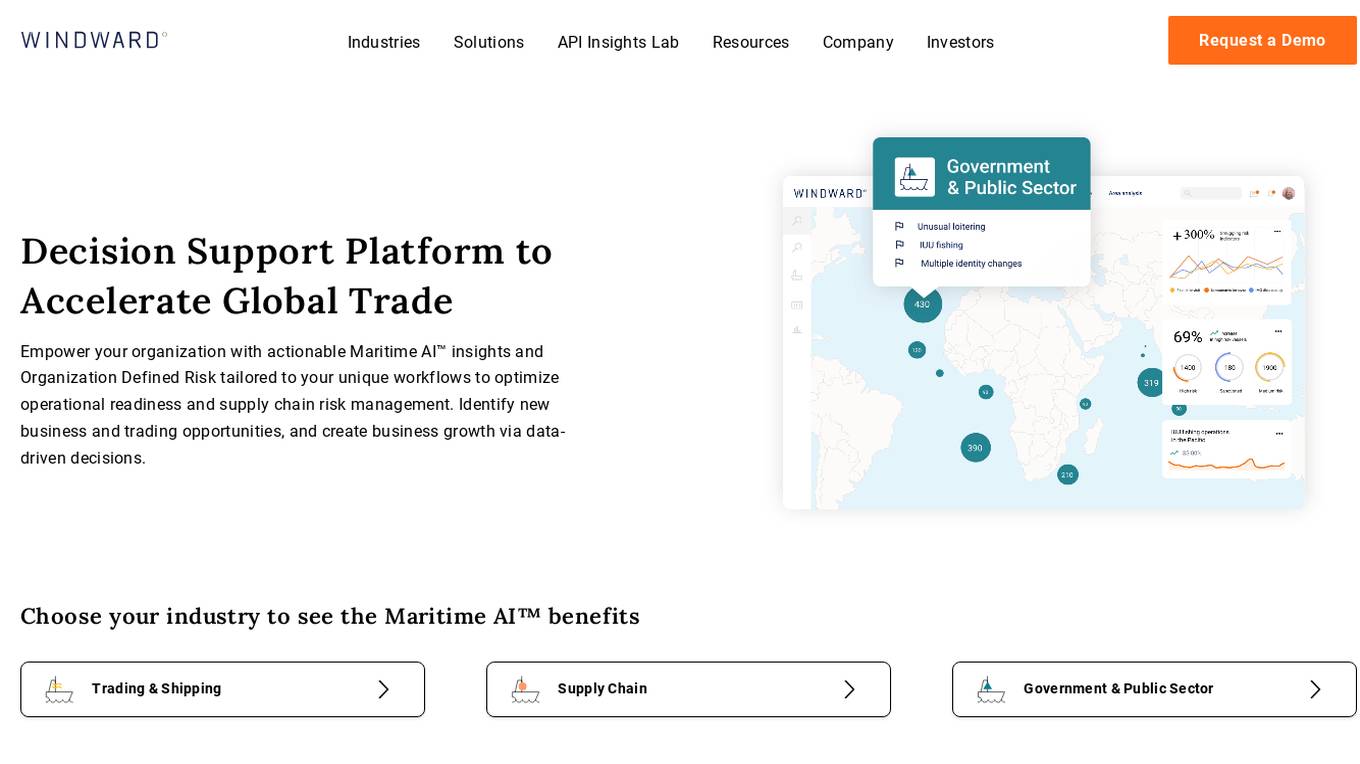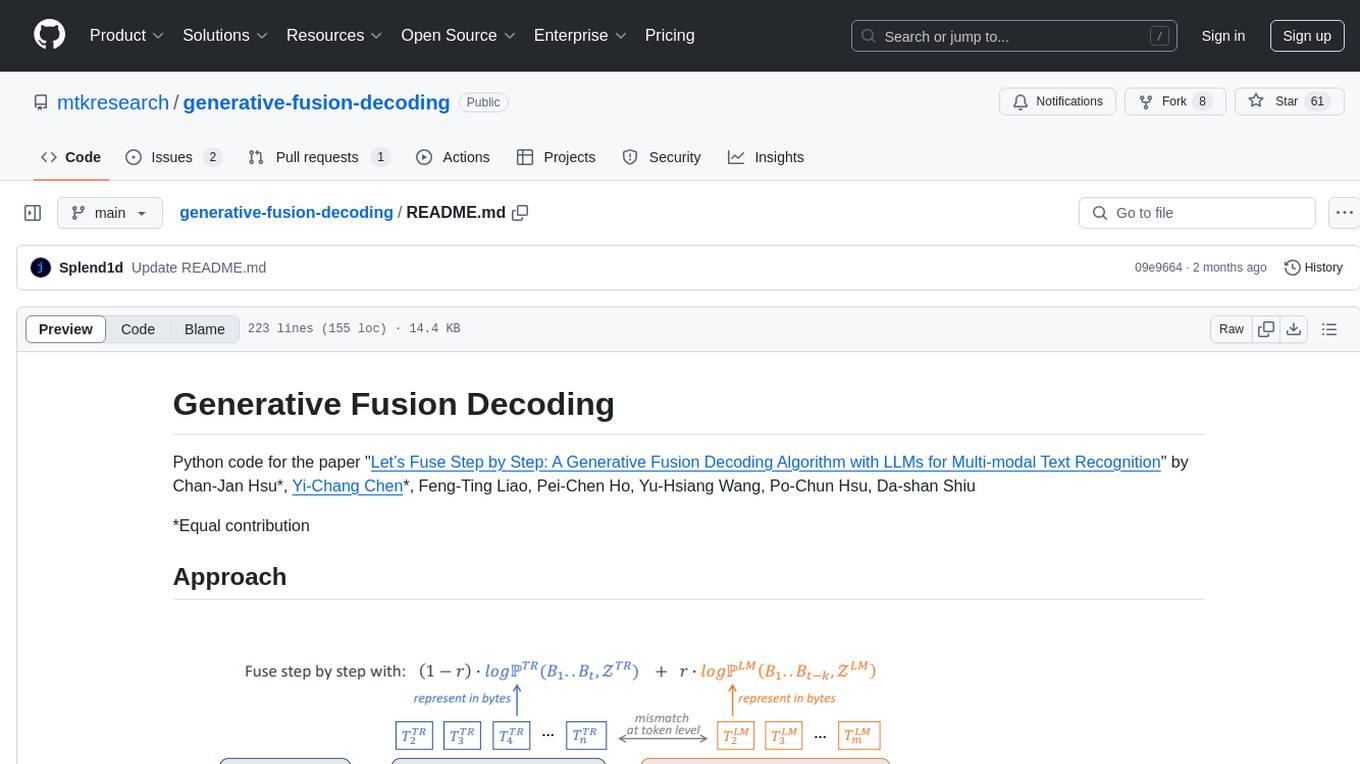Best AI tools for< Fusing Models For Multi-modal Recognition >
1 - AI tool Sites

Windward
Windward is a Decision Support Platform that empowers organizations with actionable Maritime AI insights and Organization Defined Risk tailored to optimize operational readiness and supply chain risk management. It provides innovative AI models, daily vessel activities monitoring, and predictive risk insights for various industries such as trading, shipping, supply chain, logistics, government, and public sector. Windward offers a holistic view of maritime risk by fusing multiple data sources and applying advanced machine learning models. The platform helps in vessel screening, business growth, exception insights, and predictive risk insights.
1 - Open Source AI Tools

generative-fusion-decoding
Generative Fusion Decoding (GFD) is a novel shallow fusion framework that integrates Large Language Models (LLMs) into multi-modal text recognition systems such as automatic speech recognition (ASR) and optical character recognition (OCR). GFD operates across mismatched token spaces of different models by mapping text token space to byte token space, enabling seamless fusion during the decoding process. It simplifies the complexity of aligning different model sample spaces, allows LLMs to correct errors in tandem with the recognition model, increases robustness in long-form speech recognition, and enables fusing recognition models deficient in Chinese text recognition with LLMs extensively trained on Chinese. GFD significantly improves performance in ASR and OCR tasks, offering a unified solution for leveraging existing pre-trained models through step-by-step fusion.